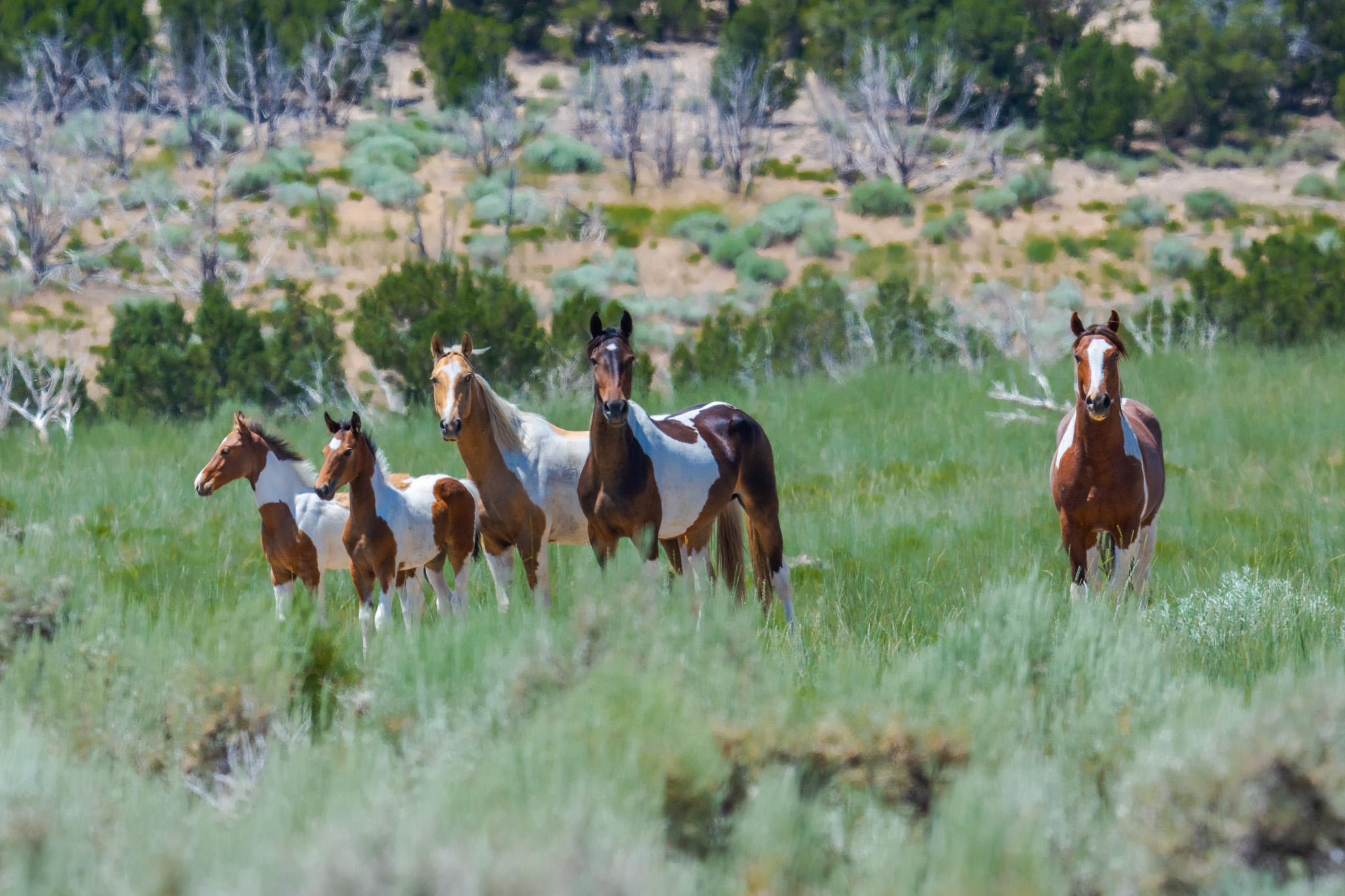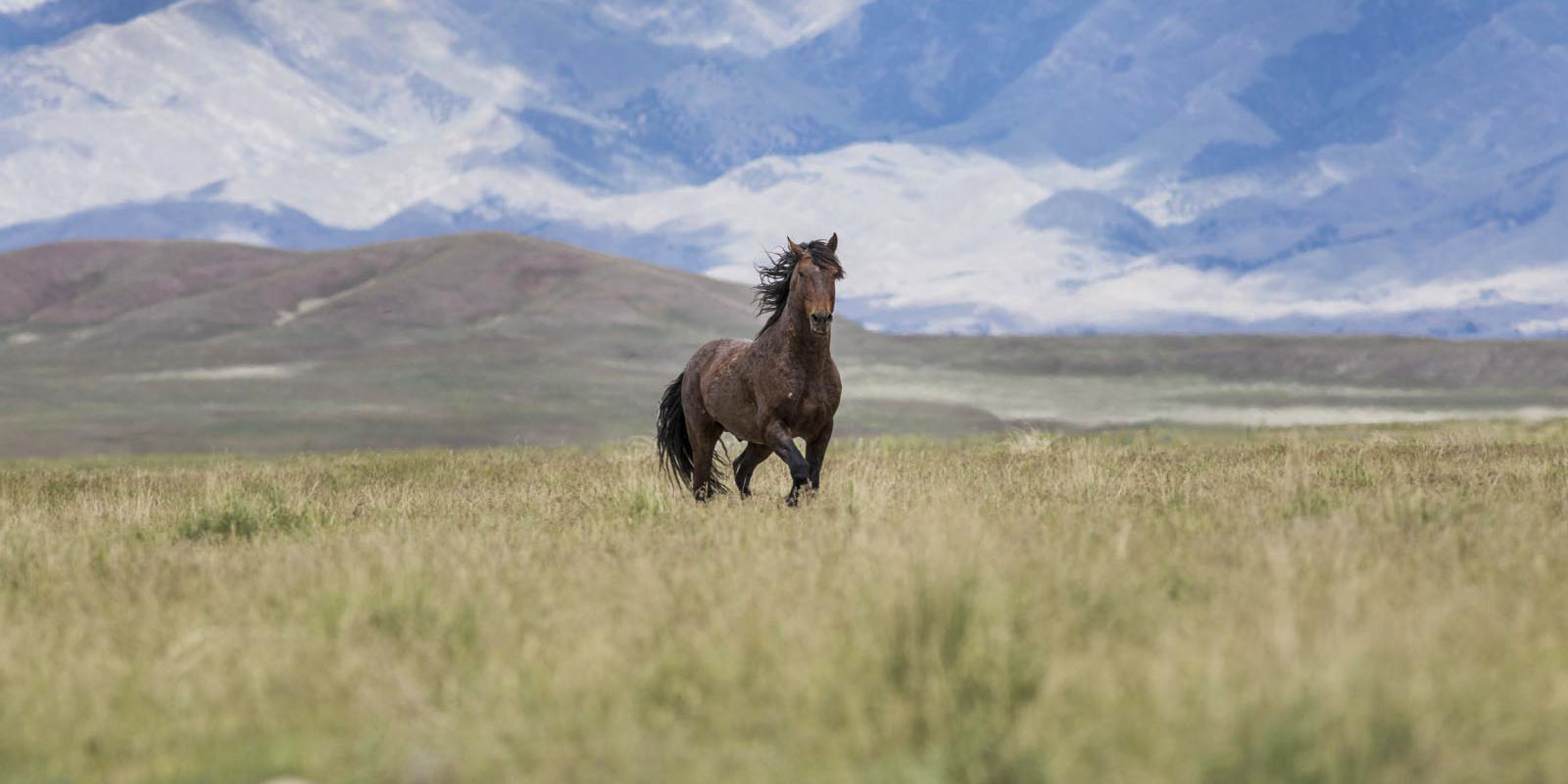(August 2, 2023) We share people’s anger and frustration about the continued abusive wild horse and burro roundups, and we want you to know what we are doing about it, with your continued support and participation.
We're educating the public
We observe, document and disseminate photos, video footage, and written accounts of the roundups to keep the public informed.
On the ground, we assess the overall situation affecting wild horses and burros, including how commercial interests like livestock ranching, oil, and mining, are impacting wild herds and influencing federal policy regarding their management and treatment.
We have the power of the people on our side, but to harness it, we must first let people know what is happening. Even today, most Americans don’t know about the plight of wild horses and burros. When they learn about it, they are outraged. It’s our job to build public awareness and the grassroots army necessary to rise up and force change. Observing, documenting, and disseminating video and photos of the roundups is essential to this task.
We're talking to the media
We send daily to weekly media advisories on anything that arises during the ongoing roundup operations.
AWHC's media team strategizes, pitches stories, draft letters to the editor, and OpEds. So far in 2023, we have been quoted 962 times in both local and national outlets and publications.
We're suing
While we would like to be able to go to court to stop every issue as it arises, litigation is expensive and far from certain. Many factors need to be considered with each new case we bring, such as what court we are in, what state we are in, what circuit we are in, which judge we are likely to get assigned, and whether the case law in that jurisdiction is helpful or harmful to the wild horse issue.
If we rush into court without a strong legal foundation, we won't just lose, we'll also create bad case law that negatively affects future cases that we and others will file. When we file litigation, we do so strategically and use our resources wisely by choosing cases that will chip away at BLM's most egregious practices.
Right now we have a case against the BLM to stop the roundup of five herds of wild horses in Wyoming.
If we believe we have a viable case to sue against a roundup, that typically occurs during the Environmental Assessment process before helicopters are ever in the air.
We're making changes in Congress
We worked with Congresswoman Dina Titus, Congressman David Schweikert, and Congressman Steve Cohen to introduce the Wild Horse and Burro Protection Act, H.R. 3656.
This proposed legislation aims to ban the use of helicopters for wild horse management by the BLM. If passed, this would be a significant step forward in protecting these animals from unnecessary harm.
In July, we secured bipartisan language in both the U.S. House and Senate Committees funding bills to protect wild horses and burros from slaughter, increase the use of fertility control vaccines and evaluate alternatives to controversial helicopter roundups. This legislation lays the groundwork for a seismic shift in the way the agency manages wild horses.


